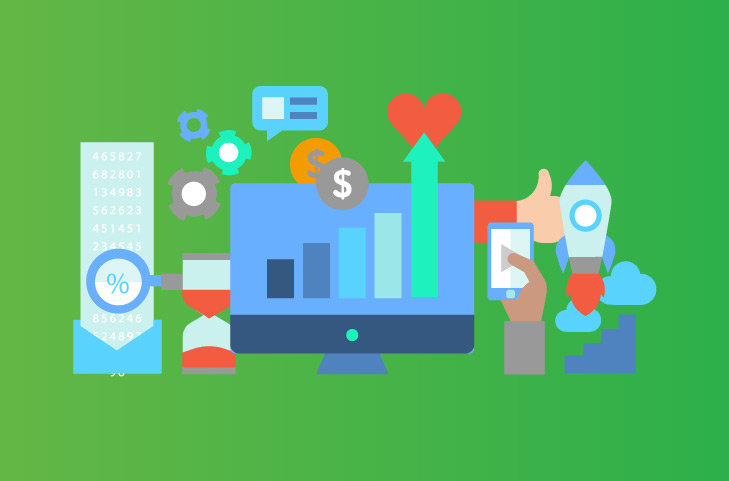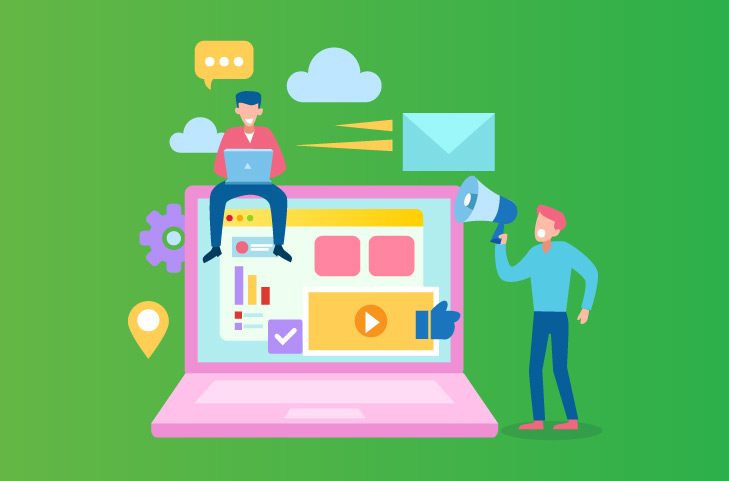What is Multichannel Marketing?
Multichannel marketing is a marketing strategy that leverages various channels to connect and engage with its target audience. Marketers use a multichannel approach to deliver a unified brand message and interact with the audience at various touch points.
Here is the list of various type of channels that come under Multichannel Marketing:

Online Channels
Online Marketing Channels refers to various digital platforms and methods that are used by businesses to promote products, services, and brands on the internet.
Here are some commonly used online marketing channels:
- Websites & Mobile Apps
- Social Media (Facebook, Instagram, LinkedIn, Twitter, Pinterest, etc.)
- Email marketing
- Influencer & Affiliate Marketing
- Search Engines (Google, Bing, etc.)
- Online Advertising (Display Ads, PPC, SEM)
- Video & Streaming Platforms
- Live Chat & Customer Support
- Content Marketing (Blogs, articles, newsletters, case studies, etc.)
- E-commerce Market Places (Amazon, eBay, etc.)
- Review and Q&A Platforms (Quora, etc.)
Offline Channels
Offline Marketing Channels refers to traditional form of marketing that are non-digital.
Here are some commonly used offline marketing channels:
- Physical stores
- Print Media (Newspapers, Magazines, Brochures, Flyers)
- TV & Radio advertising
- Outdoor advertising (Billboards, Signage, etc.)
- Events and Shows
- Direct Marketing (Telemarketing, SMS, Push notifications, etc.)
AI Channels
Artificial Intelligence (AI) Marketing are those that leverage AI technologies, and algorithms to enhance marketing efforts.
Here are some commonly used AI marketing channels:
- Voice assistants (Amazon Alexa, Google assistant, etc.)
- Chatbots and AI powered Messaging
- Wearables & IoT devices
- Augmented Reality (AR) & Virtual Reality (VR)
Benefits of Multichannel Marketing

-
Improved Retargeting Opportunities
Audiences engage with brands and sometimes leave without a purchase or conversions. Such potential prospects need extra effort to bring them back to your brand. A multichannel marketing strategy provides a second chance for your brand to convince the audience through retargeting campaigns.
Retargeting campaigns through multichannel allows you to guide potential customers through buying journey and remind them of the value proposition or benefits they might have missed during their initial visit.
Example: Reach out to the audience through general awareness ads on their favorite social media channel, use email campaigns to educate them about the specific product, and lead them to the buying stage by offering a discount code via messages or push notifications.
-
Wider Access to Audience Touchpoints
Gone are the days when a single advertisement on mainstream media or visiting a physical store were the primary touch points for brand-consumer interactions.
Present-day consumers have a multitude of channels and platforms at their fingertips to connect, engage and interact with a brand.
Using multichannel for marketing such as the combination of online, offline and AI channels provide wider access for brands to reach out to their target audience.
-
Increased Audience Engagement
Digitally empowered customers use various channels on a day-to-day basis and explore new brands before making a purchase. Concentrating marketing through only one channel might lose a potential customer who is active on other different channels.
It is important for brands to invest in various channels where their customers enjoy their time. This way using a multichannel marketing approach not only increases audience engagement but also reminds them of your brand value and existence.
In the competitive market, it is crucial to maintain a consistent presence in all the customer touch points making it easier for them to engage and build relationships with a brand.
-
More Interactions and Engagement
As discussed, modern-day consumers have various options to engage and explore new brands. If the prospective customer is away from one channel, you will see them active on the other. Customer attention diversifies according to the type of channel and its features.
For instance, your audience is using Instagram to share their moments, explore other interesting product pages through reels, etc. The same audience uses YouTube at different times to educate themselves, check reviews, hauls, etc.
This way by leveraging multichannel marketing and using different content formats for each of the channel, you as a brand is trying to initiate frequent interactions with your prospective customer at a different level.
Multichannel marketing not only initiates frequent interactions with customers and strengthens customer engagement but also builds awareness of other audiences.
-
Increase in Conversions and ROI
Multichannel marketing helps brands cater to different customer preferences and captures more sales opportunities.
Providing various touch points for the audience to interact with a brand provides flexibility and convenience to the audience.
For instance, not everybody wants to visit a website and place their order instead some prefer using social media to see new products, inquire about prices through comments, and place orders on DM’s.
Using multichannel marketing helps the audience to easily access the information about their brand, increasing conversions, and ROI.
Conclusion

Multichannel marketing is a time-taking strategy to implement but provides enormous data about the audience from all channels, builds brand reputation, consistently engages the audience, and brings in increased conversion rates.


